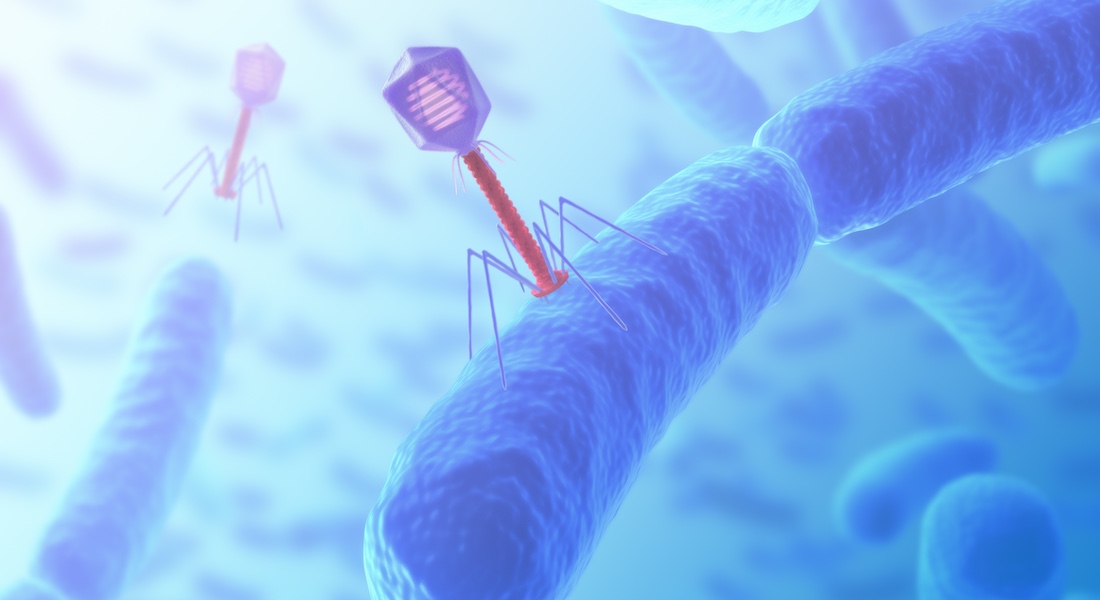Innovative phage therapy project to combat "flesh-eating disease"
In a stride towards combating the rising global threat of Necrotizing soft tissue infections, also known as the “flesh-eating disease”, the Leo Foundation has granted 4 million DKK to a new innovative phage therapy project.

Deadly infections
The project aims to pioneer targeted phage therapy to counter the aggressive Group A Streptococcus bacteria responsible for Necrotizing soft tissue infections. The infections presents a dire bacterial menace globally, requiring innovative therapeutic solutions. Despite initial treatments involving prompt surgery and antibiotics, the infections often progress, rendering antibiotics ineffective and leading to severe consequences, including amputation and, in the worst cases, death.
"One of the major problems with these infections is that the bacteria block the blood vessels, so antibiotics cannot reach the site of infection in a sufficient concentration. Phages can help here, because they grow where the bacteria lives and thereby, they can start a chain reaction even when very few phages arrive at the place of infection." says Dr. Peder Worning from Hvidovre Hospital who is one of the team members of this new exciting project.
Viruses to fight bacteria
The innovative approach of the project involves decoding the genetic makeup of Group A Streptococcus bacteria through sequencing and utilizing machine learning algorithms to predict susceptibility to specific bacteriophages, or phages. Phages are viruses that selectively target and eliminate bacteria, providing a promising avenue to address antibiotic-resistant strains without harming human cells.
"Phages have been used to threat bacterial infections since 1919 but went out of fashion in the western world after the discovery of penicillin. The growing burden of bacteria that are resistant to antibiotics have however made the use of phages to treat resistant bacteria very relevant during the last decades." says Dr. Peder Worning.
The team is led by Professor Thomas Sicheritz-Pontén from Center for Evolutionary Hologenomics, Globe Institute and his multidisciplinary team, comprises chief physicians and researchers from three Danish hospitals, the UK Centre for Phage Research and the University of Copenhagen. The team aim to identify prototype tailored phage therapies. The project will explore the rapid eradication of bacteria, harness bacterial enzymes (endolysins), and employ phage satellites for gene delivery. Phages produce endolysins to break down the bacterial cell wall when they kill the bacterial cell and release the new phages. These endolysins can be used as antimicrobial agents.
Precision medicine
The collaboration across research hubs will enable the creation of precise phage cocktails, and the development of a novel molecular typing system to predict bacterial susceptibility. If successful, this innovative phage therapy project could revolutionise the treatment of Necrotizing soft tissue infections, offering a ray of hope in the battle against these deadly infections. The generous funding underscores the critical need for advancements in the field of infectious disease treatment, supporting the project that holds the potential to save countless lives globally.
Contact:
Professor Thomas Sicheritz-Pontén
